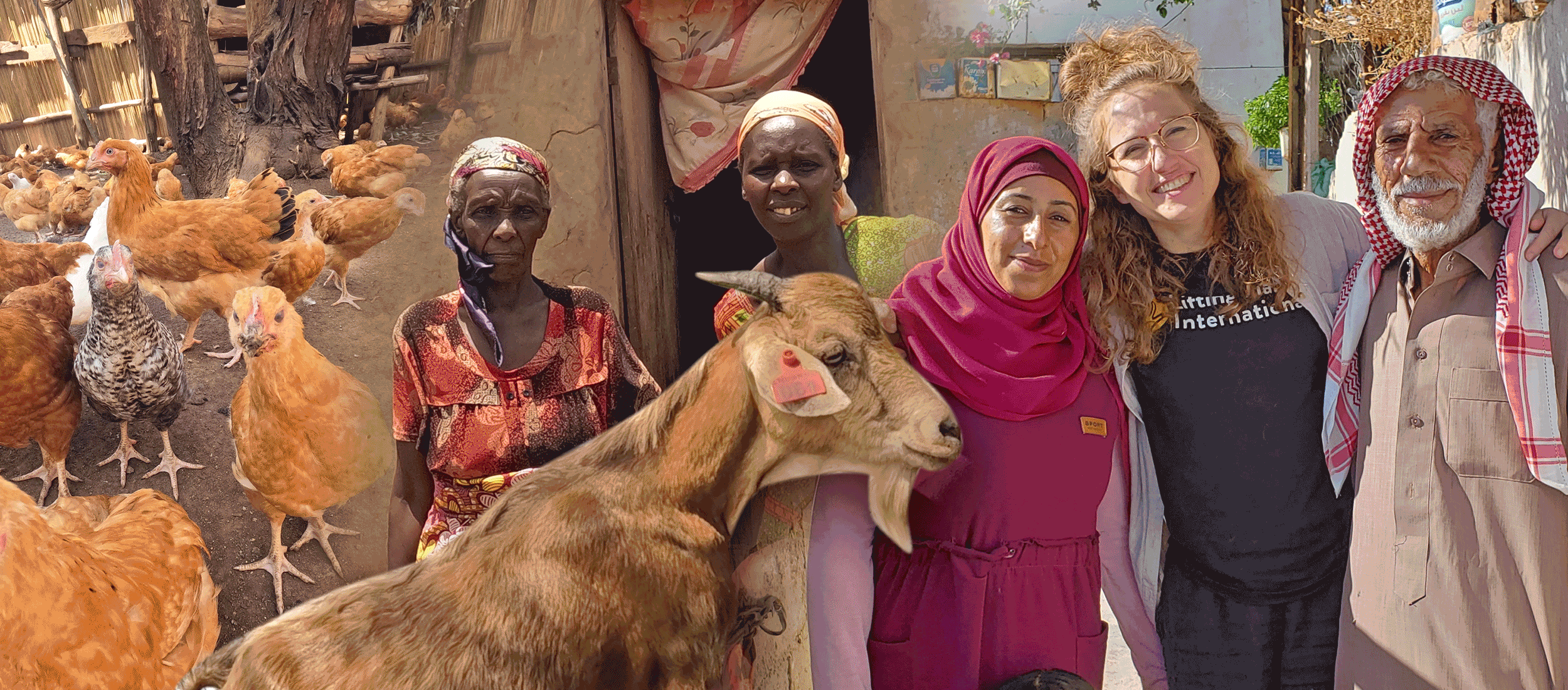REBUILDING LIVELIHOODS WITH ANIMALS
Life in a refugee camp is tough. There is very little choice, forcing people to become dependent on aid. But owning animals can be life-changing.
When we talk to refugee communities, one thing comes up again and again: Farm animals are empowering and provide steady nutrition and a reliable source of income.
When you donate to Animal Tracks, you change lives through:
Financial Stability
Families can breed and sell goats, chickens, and pigs for much needed income. Some families also sell goat milk, milk products, or eggs. We provide support like entrepreneurial training, co-op memberships, and vet care to set their businesses up for success.
Self-Sufficiency
People can finally earn their own income and provide for themselves. Most owned and cared for animals, and left them behind when they fled for safety. Animal Tracks restores the traditions they have known for generations.
Economic Mobility
The additional income from breeding animals pays for children’s school fees, medicine, housing, or food, which immediately improves quality of life. Animal Tracks isn’t just about survival—it’s about equipping people with the resources they need to achieve healthier, brighter futures.
HEY KIDS, JOIN THE ANIMAL TRACKS KIDS CLUB!
What you get when you sign up:
Your own personalized Kids Club fundraising page to share with friends and family.
A Kids Club packet with stickers and fun activities like coloring pages. We’ll mail the packet to you!
Fun Kids Club flyers to hand out to everyone you know.
Raise $150, and you can name your animal!
Click on the button below to learn more and join today!
ANIMAL TRACKS FAQ
-
Families utilize goats to provide additional income. How depends on the region where they are distributed.
In Jordan, we see families selling goat milk and products made from goat milk. They also sell male baby goats (but keep the females to grow their herds). We distribute Shami goats (also fittingly known as Damascus goats). Shami goats are a friendly breed native to the Middle East. They are prolific milk producers—a female Shami goat can produce between 350 to 650 liters of milk each year. Not only that, Shami goats have a reputation for birthing twins and triplets.
In Uganda, Congolese refugees don’t consume goat milk. Instead, they sell goats for meat. We distribute Mubende goats, a well-adapted goat breed that is right for the climate, already vaccinated, 1 to 3 years old, and most of them already pregnant.
Goats multiply quickly, giving birth twice a year, and often to twins or triplets. So herds can multiply quickly. We estimate that from the 6,000 goats we’ve distributed, there are now over 15,700 goats benefiting their families.
-
Families utilize chickens to generate additional income. Some chickens are bred as egg layers. We distribute the Saso breed, which is native to India but thrives in Uganda and is likely to yield approximately 75% more profit than the local breed. Families breed other chickens for meat as broiler chickens.
-
Families breed and sell pigs to generate additional income. In Uganda, there are countless roadside BBQ stands selling pork dishes. Refugees breed pigs, which are highly valuable, to sell for meat.
-
Animal Tracks (originally called Gather for Goats) was born in 2017, when Hayley, LHI’s Founder & CEO, was distributing aid supplies to Syrian refugees in Jordan. When Hayley, who speaks Arabic, asked people what they needed, the response was overwhelmingly, “goats!”
Many families who fled to Jordan are Bedouin and have been cultivating livestock for generations. But when the Syrian civil war broke out in 2011, families had to leave everything behind, including their herds—some of which numbered in the hundreds.
So we got to work. In collaboration with local experts and refugee communities, we launched Animal Tracks—starting with Shami goats for Syrian families in Jordan. Since then, we’ve followed the Animal Tracks to so many more places, helping even more families across different regions rebuild their lives with goats, chickens, and pigs.






